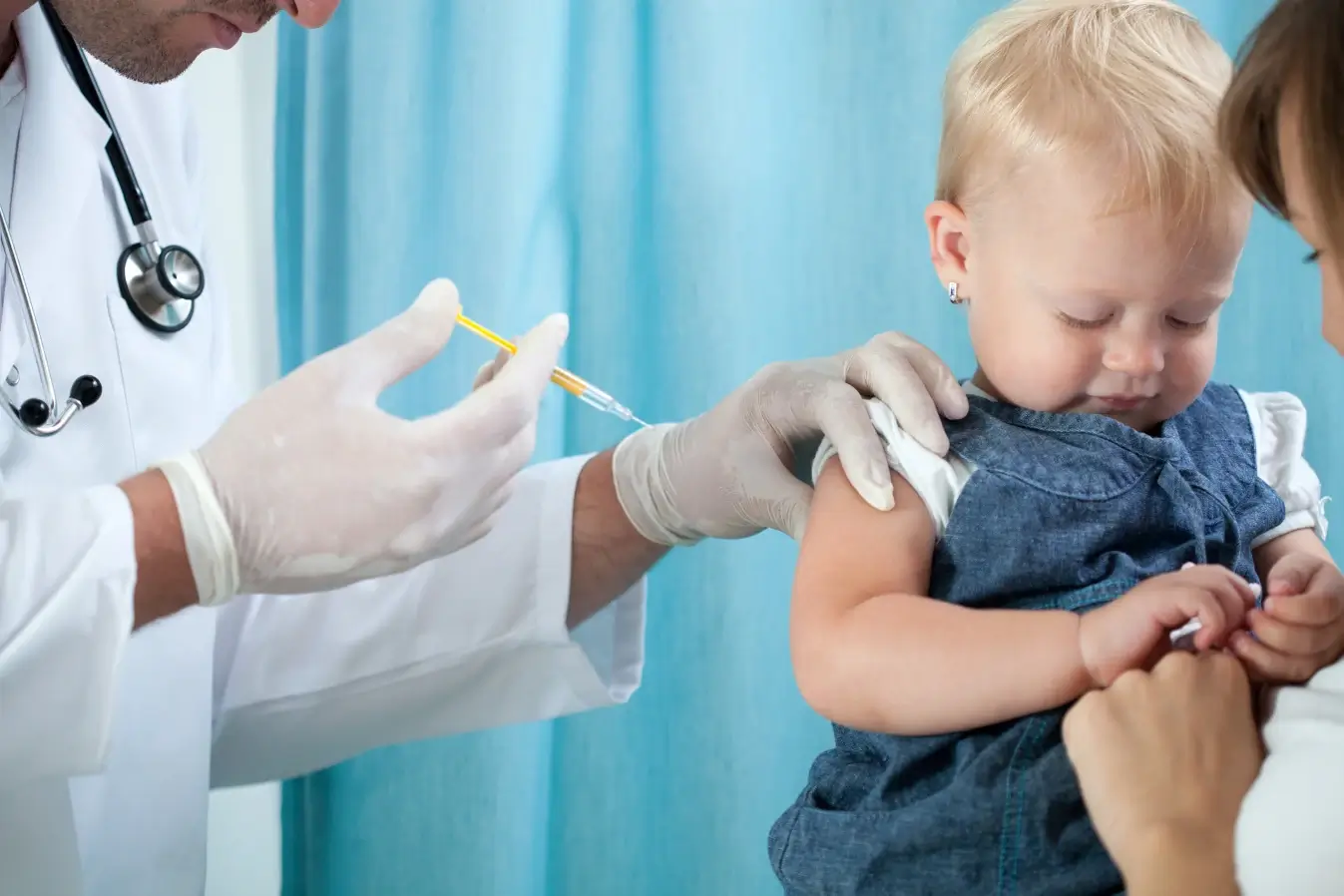Vaccinations are a basic form of prevention designed to protect the body. Avoiding this prevention exposes not only the child to illness and complications, but also the entire society because vaccinations can lead to the elimination of infectious diseases. Low vaccination rates in some countries have led to the return of many diseases that had become less dangerous thanks to vaccinations.
The Polish calendar of mandatory vaccinations includes a list of vaccines intended for children and adolescents from birth to 19 years of age, along with the dates when they should be administered. All mandatory vaccinations are free, i.e. reimbursed by the state. According to the law introduced in Poland after the outbreak of the war in Ukraine, vaccinations are free of charge for children with Ukrainian citizenship who came to Poland after February 24, 2022. It is worth emphasizing that they are also mandatory, because according to the regulations, a stay in Poland longer than 3 months obliges parents to vaccinate their child in accordance with the current vaccination schedule.
What does the Polish vaccination schedule look like?
The vaccination schedule is similar to the Ukrainian one – it contains the same vaccines administered at the same age and includes: vaccination against hepatitis B, tuberculosis, poliomyelitis, diphtheria, tetanus, pertussis, measles, mumps, rubella, Hib, rotaviruses and pneumococci (for children born after December 31, 2016). These last two vaccines are not included in the Ukrainian childhood vaccination schedule. Some vaccinations require multiple doses, others are a one-time shot. The Polish vaccination schedule includes both mandatory and recommended vaccinations that are no longer reimbursed: vaccinations against influenza, meningococci, chickenpox, HPV, tick-borne encephalitis and hepatitis A. The first two vaccines are recommended especially for infants and young children from risk groups, e.g. those attending educational institutions, where they are more exposed to infection with childhood diseases.
It is also possible to purchase combination vaccines that reduce the number of injections, so-called 5-in-1 or 6-in-1 vaccines, intended for infants and the youngest children.
Infectious diseases against which children are vaccinated in Poland
The first mandatory vaccinations are administered to children on the first 24 hours after birth. The newborn receives a vaccine against tuberculosis and a dose of vaccine against hepatitis B. The hepatitis B vaccine must be administered two more times: subsequent booster doses are administered at 2 and 7 months of the child’s life.
In the 2nd month of life, the infant also receives a vaccine against rotaviruses (2 or 3 doses of vaccination are administered at least 4 weeks apart), against diphtheria, tetanus and whooping cough (one so-called DTP vaccine in 4 booster doses up to 18 months of age), against Haemophilus influenzae type b infection (also 4 doses up to 18 months of age) and against pneumococci (3 doses up to 15 months of age). Children aged 3 and 6 months receive poliomyelitis vaccine (further booster doses at 16-18 months and 6 years).
An important shot is the measles, mumps, and rubella (MMR) vaccine, given from the age of two. The first dose is given at the age of 13-15 months, and the child receives a second booster dose at the age of 6 years.
The last vaccination is given to the patient at the age of 19 – it is a booster vaccine against tetanus.
How to vaccinate a child in Poland?
To vaccinate a child who is a citizen of Ukraine, you must register him or her with a primary health care clinic. It is a good idea to have your child’s health booklet with you, based on which the doctor will establish an individual vaccination schedule. In Ukraine, the vaccination rate for children is low, so it may turn out that some vaccinations will have to be completed outside the dates recommended in the calendar. In accordance with the recommendations of the Minister of Health, the priority is to provide Ukrainian citizens up to 2 years of age with vaccines against measles, mumps and rubella, against diphtheria, tetanus and pertussis, against poliomyelitis and hepatitis B.
When parents do not have medical documentation, their child will be considered unvaccinated. The doctor will assess the need to administer the vaccine based on the interview and examination of the child regarding possible contraindications to vaccination (these may be, for example, severe allergic reactions to certain components of the vaccine that became apparent during previous vaccinations).
Newborns born in Poland are subject to mandatory vaccinations in accordance with the Polish Immunization Program.



